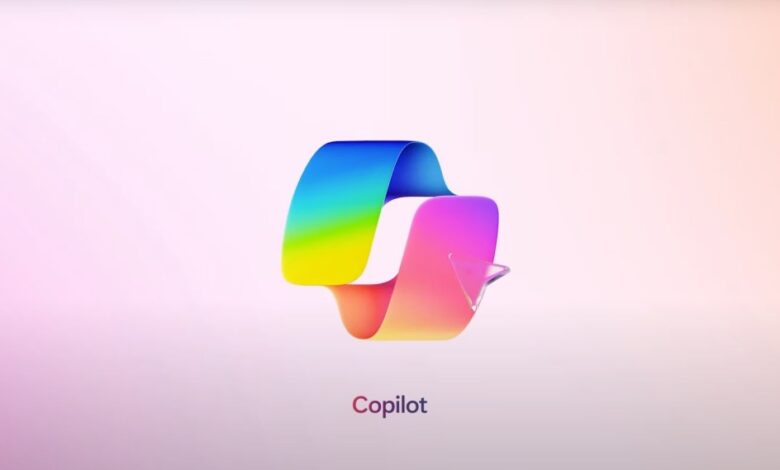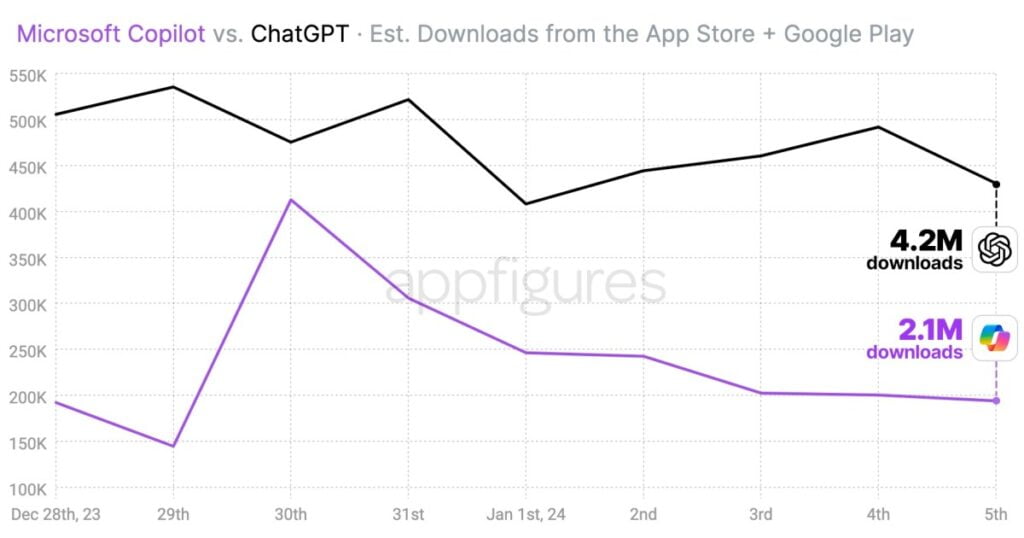Can Microsoft's Copilot Catch Up to ChatGPT?
Analysis shows that OpenAI's ChatGPT remains unaffected by the launch of Microsoft's Copilot app, which offers free access to GPT-4

A recent analysis of app store data indicates that Microsoft Copilot, an AI chatbot built with OpenAI technologies, has not significantly impacted the number of installs or revenue for OpenAI’s ChatGPT. Despite Copilot offering free access to the newer GPT-4 technology, which ChatGPT charges for, there has been no noticeable shift in user preference thus far. This lack of impact could be attributed to the limited promotion of Copilot.
App store intelligence provider Appfigures suggests that Copilot’s launch went largely unnoticed by potential users due to a combination of factors. Upon its release on Google Play on December 20, the app didn’t rank initially, likely because of the absence of promotion during that period. Additionally, the app launched on the App Store on December 28 without leveraging Apple’s Search Ads, which could have increased its visibility among iOS users searching for related terms like “AI chatbot” or “ChatGPT.”
Since its launch, Copilot has garnered a total of 2.1 million downloads across iOS and Android platforms as of January 5, 2024. Daily downloads peaked at 413,000 but have since slowed down. The largest market for Copilot is the United States, accounting for 24% of downloads, followed by Germany, India, Italy, and the U.K. The distribution of installs is relatively evenly split between iOS and Android, with 59% on Google Play and 41% on the App Store.

While ChatGPT’s downloads have also been slowing down in December, this trend began before the release of Copilot. During Copilot’s accumulation of 2.1 million installs, ChatGPT gained an additional 4.2 million downloads. Appfigures indicates that there is no evidence to suggest that Copilot has had any impact on ChatGPT’s installs or revenue, which continues to rise.
ChatGPT experienced significant success upon its launch, surpassing 500,000 downloads in just six days. Despite Copilot’s introduction, ChatGPT maintains a dedicated user base, potentially explaining the lack of interest in switching to the new app. Additionally, the holiday launch and limited promotion may have resulted in many potential users being unaware of Copilot’s arrival. It is important to note that Copilot’s integration with Bing and other factors may have also influenced user decisions.
For now, ChatGPT remains the dominant AI chatbot, while Microsoft explores other ways to utilize the AI technology, such as by adding a Copilot button on PCs.




